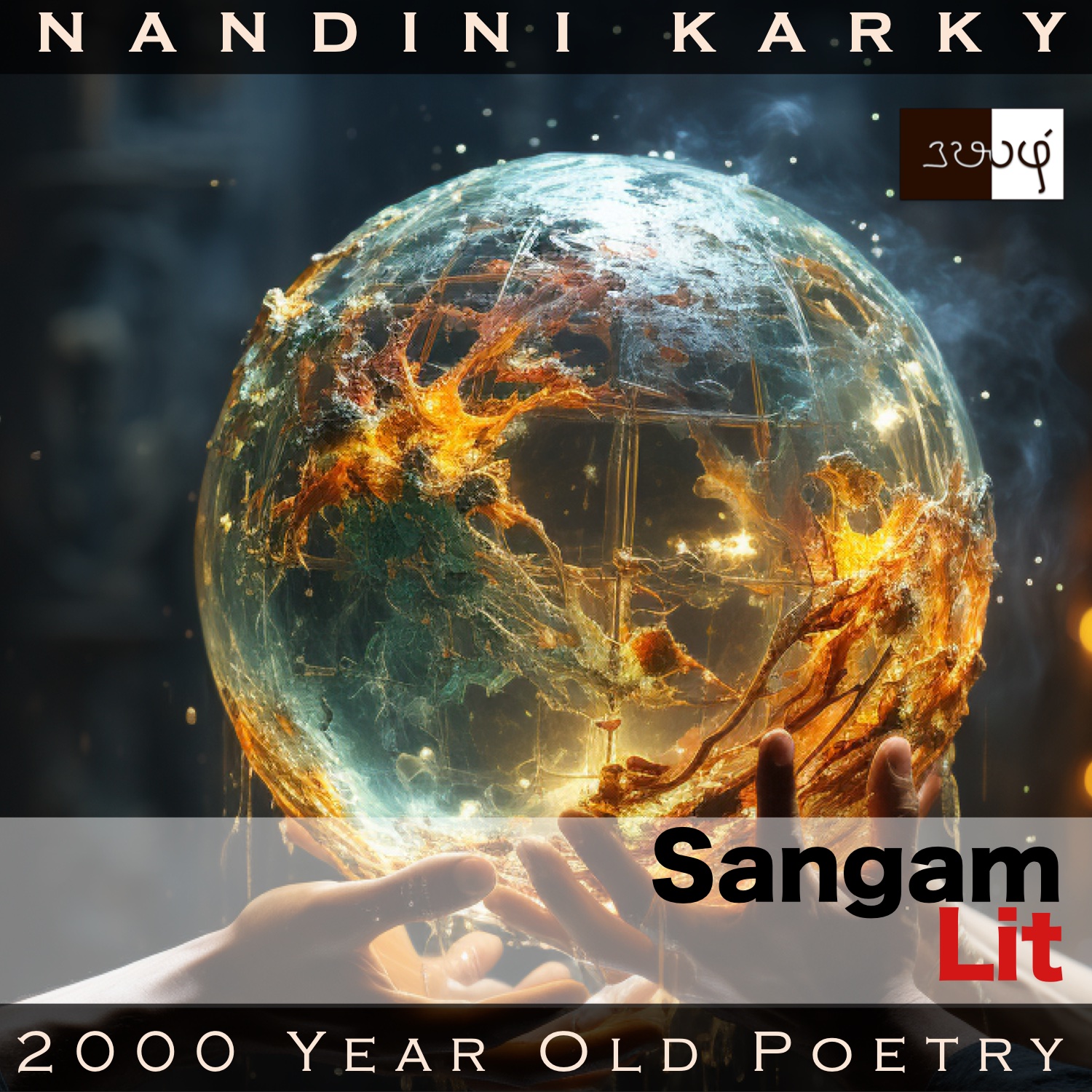Podcast: Play in new window | Download
Subscribe: Apple Podcasts | Spotify | Amazon Music | Android | iHeartRadio | TuneIn | RSS | More
In this episode, we encounter a list of celebrated virtues, as portrayed in Sangam Literary work, Puranaanooru 182, penned by the Pandya King Kadalul Maaintha Ilamperuvazhuthi. The verse is situated in the category of ‘Pothuviyal Thinai’ or ‘Miscellaneous matters’ and reveals the reasons why the world lives on.

உண்டால் அம்ம இவ் உலகம் இந்திரர்
அமிழ்தம் இயைவதுஆயினும், ‘இனிது’ எனத்
தமியர் உண்டலும் இலரே; முனிவு இலர்;
துஞ்சலும் இலர்; பிறர் அஞ்சுவது அஞ்சி,
புகழ் எனின், உயிரும் கொடுக்குவர், பழி எனின்,
உலகுடன் பெறினும், கொள்ளலர்; அயர்விலர்;
அன்ன மாட்சி அனையர் ஆகி,
தமக்கு என முயலா நோன் தாள்,
பிறர்க்கு என முயலுநர் உண்மையானே.
A complete change of pace from the songs of praise and victory about kings by poets we have seen this far. The one who has penned this verse is said to be a Pandya king, who in later life perished during a sea voyage, which apparently were undertaken with countries far and wide for trade of commodities, possibly pearls and pepper. An abstract verse, which can be translated as follows:
“There’s a reason this world exists. Even if the immortals were to grant unto them the elixir of life, saying ’this is good’, they would never eat it alone; They have no hatred; They are never idle; Fearing what others fear, for righteousness, they would give their very life; However, if it’s a thing of shame, even if they were to attain the whole world with that, they would not choose that path; They are never weary; With all these glorious qualities, they are people, who spend their determined efforts not for themselves, but for others. Because such people live, this world too lives on.”
Let’s take a closer look at this king’s view of life. He seems to be pondering on the puzzle of what makes the world exist. Stepping away from the question, he starts listing attributes of a certain kind of people. First and foremost on this list is a quality of giving unto others. Apparently, even if something immortal like ambrosia is given by the gods, these people cannot think that what they have is just for them, and instead, would search for others to share it with. Whatever it may be they attain in life, they have to relish that with others or not at all, says the king. As we have seen in so many Sangam verses, Aham and Puram, the search for wealth then seems to be only to give unto others, and this tendency towards collectivism, a marker of many Eastern cultures, rather than individualism, which seems to be the defining aspect of many Western cultures, is what we see stressed in this attribute. The second quality is about being without hatred, and though it sounds so simple, imagine the amount of love and tolerance one should have to achieve this ideal. Moving on, the third one is about never being lazy, and constantly working towards something. The fourth has contrasting a and b segments to it and these are: a) For the sake of doing the right thing, they would give their lives. b) If it’s the wrong thing, even if they were to receive the whole world as their reward, they would refuse to take it up. Following this, the fifth attribute is that they do not lose hope or enthusiasm for whatever they doing, for they are tireless till the end.
As a summation of these qualities, the king mentions with a concise sketch that these are people who spend immense efforts for the sake of others and not for themselves. A celebration of altruism in the ancient era! The king concludes by saying, ‘Elementary, my dear Watson, it’s because of such people the world lives on!’. Through this verse, we get a resounding list of adjectives that people in the Sangam era aspired to add to their descriptions: Sharing; Loving; Hard-working; Law-abiding; Enduring, and, as the cherry on the top, Self-sacrificing!




The summation is so apt. Great work 👏